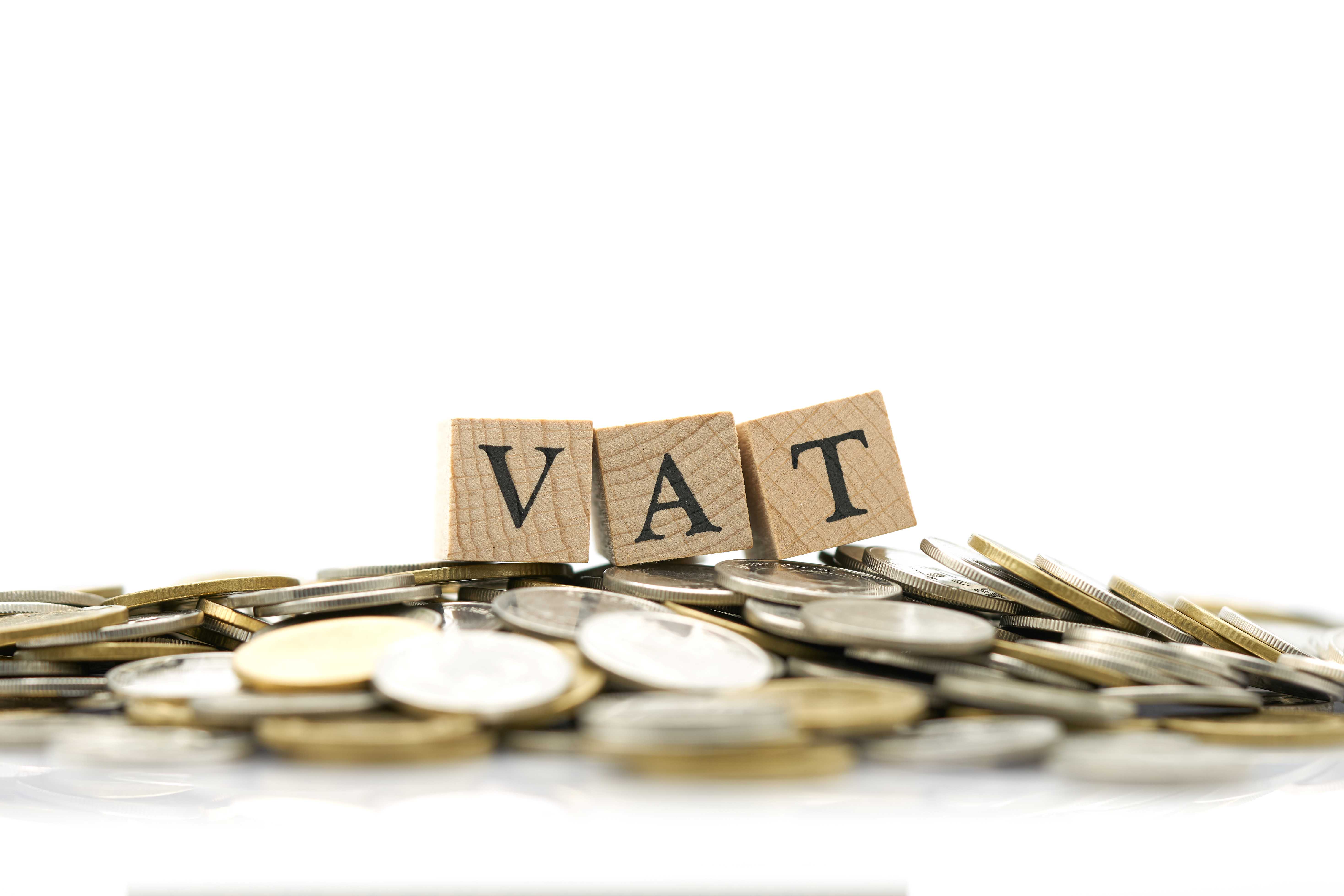If you run a business in the UK, you’ve almost definitely come across the term VAT (Value Added Tax). It might seem a bit dry at first glance, but it can have a real impact – on how you run your business, how professional you appear, and even how much money you keep.
Thinking about VAT registration? Here’s a clear, no-nonsense look at the benefits, and why it might be worth your while.
What is VAT (in simple terms)?
Let’s start with the basics. VAT is a tax that businesses charge on most goods and services they sell. If you’re VAT registered, you add VAT (usually 20%) to your prices, collect that tax from your customers, and then pass it on to HMRC. You can also reclaim the VAT you’ve paid on things your business buys.
Sounds simple, and in many ways it is, but understanding your VAT obligations, including when you must register and whether to register early, can feel like a big decision.
Who has to register for VAT?
In the UK, you must register for VAT if your taxable turnover (that’s most of your sales) goes over £90,000 in any 12-month period (for 2025/26 and 2026/27).
But you can register voluntarily, even if your turnover is well below that. And plenty of small businesses choose to do just that – because there are a number of benefits of being VAT registered.
Let’s dig into them.
1. You can reclaim VAT on your business
This is one of the most obvious benefits of being VAT registered. Once you’re in the system, you can claim back the VAT you pay on eligible purchases.
That includes:
- Equipment like laptops, desks, tools or cameras
- Office supplies and software subscriptions
- Business travel expenses (including fuel, where VAT applies)
- Stock and materials
So if you’re spending a fair bit on running your business, being VAT registered means you can reduce your costs by getting some of that money back.
Let’s say you buy a new laptop for £1,200, including £200 VAT. If you’re VAT registered, you can reclaim that £200. Over the course of a year, this adds up fast – especially for product-based or equipment-heavy businesses.
{{crunch-free}}
2. It makes your business look more established
It might not be fair, but perception counts. Being VAT registered can make your business seem more credible, particularly if you’re working with other businesses.
Clients or suppliers might assume your turnover is above the £90,000 threshold (even if it’s not), which can signal that you’re a serious, established operation. If you’re a freelancer, contractor or small company trying to land bigger clients, that extra layer of legitimacy can help open doors.
Think of it like a badge, it won’t get you work on its own, but it can reinforce the impression that you know what you’re doing.
3. You’re ready to scale up
Let’s say you’re currently earning £50,000 a year. But your plan is to grow, and you’re actively marketing or expanding. At some point, you’ll hit the VAT threshold, and if you haven’t registered yet, you’ll need to do so quickly to stay compliant.
By registering early, you get the admin sorted on your own terms, rather than scrambling to meet a legal deadline. You also avoid potential penalties or backdated VAT payments if you go over the limit without realising.
Plus, another benefit of being VAT registered is that you won’t need to constantly monitor your rolling 12-month turnover, it’s one less thing to stress about.
4. You can work with larger businesses more easily
Big businesses expect to deal with VAT invoices, and many actually prefer working with VAT registered suppliers.
Why? Because if they’re VAT registered themselves, they can reclaim the VAT on your invoice, which means your services effectively cost them less.
So if you're quoting for work and you're not VAT registered, some companies may see it as a bit of a hassle, or even skip over you entirely.
Registering for VAT makes you a more natural fit for the kind of clients who pay on time, value professionalism, and tend to offer longer-term opportunities.
5. You could increase your profits (yes, really)
This one might sound odd. After all, you’re collecting tax on behalf of HMRC, right? But in certain situations, VAT registration can actually improve your profit margins.
Here’s how: If you’re mainly selling to other VAT registered businesses, they won’t mind paying the VAT because they’ll just claim it back. That means you can charge VAT on top of your normal prices, reclaim VAT on your expenses, and not lose any sales in the process.
You’re essentially keeping more of your money, because you’re recovering VAT that non-registered businesses have to swallow as a cost.
On the other hand, if most of your clients are individuals or non-VAT registered, you’ll need to factor VAT into your prices more carefully to stay competitive.
6. You get access to different VAT schemes
Once you’re registered, you can explore VAT accounting schemes that might make life easier. Or more profitable, depending on how your business works.
A few examples:
Flat Rate Scheme:
You pay a fixed percentage of your turnover to HMRC, and you don’t reclaim VAT on purchases (except some capital assets). It’s designed to simplify bookkeeping, and for some small businesses, it works out cheaper overall.
Cash Accounting Scheme:
You only pay VAT when you actually receive payment from customers, not when you send the invoice. Helpful for managing cash flow.
Annual Accounting Scheme:
You make advance payments towards your VAT bill and file one return a year. Less admin, and easier to budget.
These schemes aren’t for everybody. Each one has pros and cons, but being VAT registered gives you options.
7. It forces you to get organised
Nobody loves admin, but VAT registration can push you to get your finances in order – which is never a bad thing.
Once you’re registered, you’ll need to:
- Keep proper records of sales and purchases
- Send quarterly VAT returns (or annually, if on the Annual Accounting Scheme)
- Submit your VAT returns via Making Tax Digital-compatible software
It might sound like a faff, but with the right tools or accountant (like Crunch), it’s very manageable. And it means you’ll have a better handle on your business performance and cash flow.
Many business owners find that once they’re in the rhythm of regular reporting, they actually feel more in control.
8. It can protect your reputation
Oddly enough, not being VAT registered can sometimes raise eyebrows.
If a potential client sees you’re not VAT registered and your prices seem high, they might begin to question things like:
- Whether your business is fully established
- If you’re deliberately staying under the threshold to dodge tax
- Or if you’re hesitant to grow and take on bigger opportunities
Although the assumptions may be unfair, they do happen. So another benefit of being VAT registered is being on an equal footing with other businesses. It closes down any awkward questions about why you aren’t VAT registered.
{{ltd-guide}}
When should you not register for VAT
Once your taxable turnover exceeds the VAT threshold (currently £90,000), you’re legally required to register—it’s not optional.
That said, if your turnover is below the threshold, registering early might not always be the best choice. Even with all the benefits of being VAT registered listed above.
For example:
- If most of your customers are individuals or businesses that can’t reclaim VAT, adding 20% to your prices could make you less competitive.
- If your business has low expenses, you won’t benefit much from reclaiming VAT.
- VAT registration brings extra admin and responsibilities, which, although made easier with tools like Crunch, still add complexity.
If you’re just starting out with low turnover and costs, it often makes sense to wait until you reach the threshold or your business circumstances change.
But when your turnover grows or you mainly deal with VAT-registered businesses, the benefits of being VAT registered usually outweigh the downsides.
So, is VAT registration worth it?
If your taxable turnover goes over the VAT threshold, VAT registration is a legal requirement. But even if you're under the limit, registering early can bring genuine advantages, depending on how your business operates.
It can help you reclaim costs, work more easily with larger clients, and present a more established image. In the right circumstances, it can even improve your bottom line. On the flip side, if your customers are mostly individuals and your expenses are low, registering too soon could make you less competitive.
There’s no one-size-fits-all answer, but the good news is, you don’t have to figure it out alone.
How Crunch can help
VAT doesn’t have to be overwhelming—and with Crunch, it isn’t.
Our powerful accounting software tracks your income, highlights when you’re approaching the VAT threshold and makes submitting Making Tax Digital compliant returns quick and easy. And when you need real answers, our expert UK-based accountants are just a message away. Ready to offer clear, personalised advice.
Whether you’re just getting started or growing at a pace, we’ll help you understand when VAT registration is required, whether it makes sense for your business, and how to stay compliant without the stress.
With Crunch, you get the tools and the team to take the headache out of VAT.
Get a free trial today, and let us show you how simple accounting can be.

.svg)



.webp)








.avif)
.avif)





